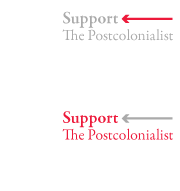The story of the global pharmaceutical industry’s complicity in the AIDS related deaths of millions of Africans, Asians and Latin Americans is a story that, like politics and religion, gets underneath one’s skin. It is an uncomfortable, nasty and shameful narrative indicative of the work that still remains to be done in order to achieve equity and justice in a world where the livelihood of an economically disadvantaged citizen of the Global South is at the mercy of wealthy policy makers and corporations in North America and Europe.
“Fire in the Blood”, written and directed by Dylan Mohan Gray and narrated by William Hurt, is fundamentally about crime in a postcolonial world where legacies of the colony abound. In this scenario the crime is the AIDS related deaths of millions of citizens in the Global South who cannot access generic, cheaper drugs due to patents designed to protect the profits of the pharmaceutical companies that bar the production of generic versions. Profit over people is the lesson here. This point is driven home further when it is revealed that Western citizens coping with AIDS are also being taken for a ride, as they must pay market prices for medications that would be considerably cheaper if generic versions were made available.
While “Fire in the Blood” is very much an indictment of the exclusions and excesses of modern day capitalism, it is also a lesson on how to create and sustain a viable social movement. Mix civil society, social justice activists, doctors in the field, rock star leaders, pharmaceutical industry insiders, and tireless investigative journalists with a conscience, and access to the highest levels of political and economic privilege, and the result is a fierce, fearless movement.
This story, however, is not all sadness and travail. We learn that in 2001 through the efforts of Dr. Yusuf K. Hamied, the head of Mumbai based Cipla, and William F. Hadad the father of the American Generic Drug Movement, the triple cocktail of AIDS drugs was made available to countries for less than $1 per day. By 2007, President William J. Clinton and his foundation succeeded in pushing down the cost of anti-retroviral treatment in Africa to below $100 per patient per day. Certainly, before any of these major victories there were the grass roots efforts. Individuals on the ground, like South African activist Zackie Achmat and Ugandan doctor and researcher Peter Mugyenyi, raised the standards of leadership on this issue, illustrating their resolve and refusing to be dissuaded from the struggle to achieve a basic right for their people: the right to live.
“Fire in the Blood” is a sobering film that reminds us that the privilege of a few is often predicated on the destruction of many. The beauty and value of this film is that it is generating new discussion and has transformed existing conversations about inequity and injustice. History teaches us that change can come from anywhere, and this film is a worthy catalyst for positive change in the global health field.





